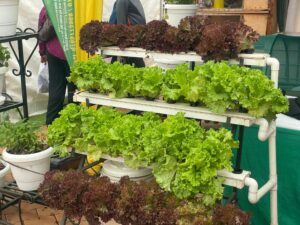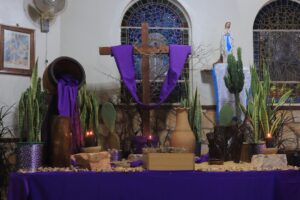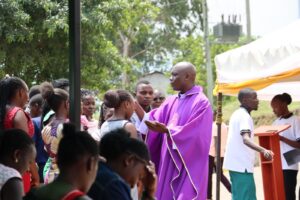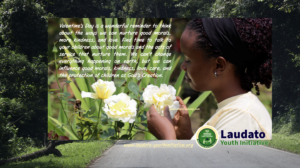Each year on May 22, the world observes the International Day for Biological Diversity (IDB)—a day dedicated to increasing understanding and awareness of the vital role biodiversity plays in sustaining life on Earth. Established by the United Nations, this global event serves as a reminder of our shared responsibility to protect the rich tapestry of life that supports our economies, health, and ecosystems to live in harmony with nature.
In 2025, the theme of IDB resonates more urgently than ever, particularly for nations like Uganda, a country celebrated for its ecological richness and diverse habitats, from the Albertine Rift to the tropical rainforests and expansive wetlands. However, Uganda also faces significant biodiversity threats—deforestation, wetland degradation, and climate change are rapidly diminishing the natural resources upon which millions of Ugandans depend.
The Role of the Laudato Youth Initiative
The Laudato Youth Initiative is deeply committed to promoting ecological awareness and action through a values-based, culturally grounded approach. Inspired by Pope Francis’ Laudato Si’, the initiative emphasizes integral ecology, which sees the health of our environment as inseparable from social, cultural, and spiritual well-being. As part of our mission, International Biodiversity Day is a key opportunity to amplify awareness and encourage community-based solutions rooted in both indigenous wisdom and faith traditions.
How We have Participated in Raising Awareness
As an individuals, youth groups, schools, and faith communities you can engage meaningfully with International Biodiversity Day
1.Community Storytelling Circles
We host local gatherings that feature storytelling sessions led by elders and environmental stewards. These stories—such as those of the Uganda Martyrs and other traditional narratives transmit ecological values, emphasizing harmony with nature and care for creation.
2. Ecological Education Workshops in Schools
We Incorporate biodiversity topics into our Laudato Si Cubs discussions. The Laudato Youth Initiative supports interactive workshops that explore local ecosystems, endangered species, and the cultural significance of biodiversity.
3. Tree Planting and Indigenous Plant Revivals
We organize tree-planting drives that prioritize indigenous and fruit tree species known for their ecological resilience and cultural importance. These efforts help restore habitats while fostering a sense of environmental stewardship among youth.
4. Faith-Based Reflections and Prayer Services
We use the day to reflect spiritually on our call to care for creation with Churches and faith-based organizations can hold prayer services inspired by Laudato Si’, linking scripture, biodiversity, and moral responsibility.
5. Digital Campaigns Led by Youth
We conduct social media campaigns that celebrate Uganda’s biodiversity using photos, videos, and testimonies. The #LaudatoYouthInitiative and #BiodiversityDay hashtags can be used to amplify local voices and connect with a global audience.
6. Collaborations with Local Conservation Organizations
We are open to partner with NGOs, community-based organizations, to support biodiversity monitoring, clean-up campaigns, and conservation training programs.
The united nations advises that “as the global community is called to re-examine our relationship to the natural world, one thing is certain: despite all our technological advances we are completely dependent on healthy and vibrant ecosystems for our water, food, medicines, clothes, fuel, shelter and energy, just to name a few. This involves respecting, protecting, and repairing our biological wealth.”
We believe International Biodiversity Day is not just a celebration it is a mobilization. For Uganda, safeguarding biodiversity is crucial to preserving the nation’s ecological wealth and cultural heritage. The Laudato Youth Initiative invites all Ugandans, especially the youth, to take up this call with courage, creativity, and innovation. Together, through education, action, and the wisdom of our traditions, we can ensure that Uganda’s unique biological heritage thrives for generations to come.









